
“It is He who changes the times and the epochs; He removes kings and establishes kings; He gives wisdom to wise men And knowledge to men of understanding.” —Daniel 2:21
John C. Calhoun Resigns as Vice President, December 28, 1832
 ew U.S. Presidents have been more controversial than Andrew Jackson. He still stimulates debate, anger, and admiration, as he did in his own day, although today primarily among academic historians, rather than members of Congress, his own cabinet, and the movers and shakers of the D.C. social set. Along with the President of “the Jacksonian Era,” the political power brokers of the nation featured three of the most renowned senators in American history, Henry Clay, Daniel Webster, and John C. Calhoun—the “Great Triumvirate.” ew U.S. Presidents have been more controversial than Andrew Jackson. He still stimulates debate, anger, and admiration, as he did in his own day, although today primarily among academic historians, rather than members of Congress, his own cabinet, and the movers and shakers of the D.C. social set. Along with the President of “the Jacksonian Era,” the political power brokers of the nation featured three of the most renowned senators in American history, Henry Clay, Daniel Webster, and John C. Calhoun—the “Great Triumvirate.”
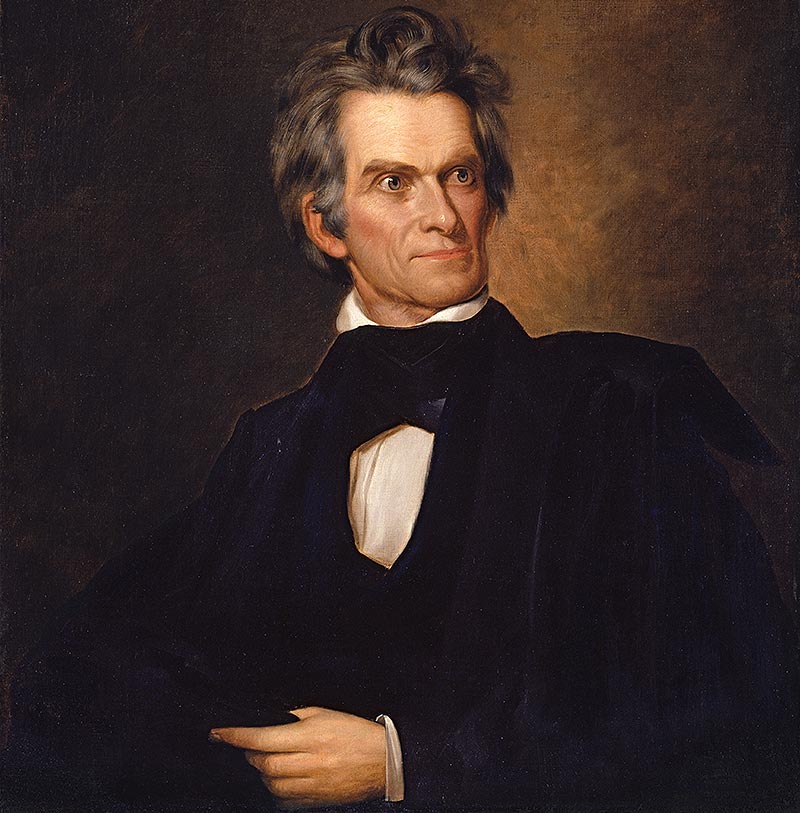 John C. Calhoun (1782-1850), seventh Vice President of the United States John C. Calhoun (1782-1850), seventh Vice President of the United States
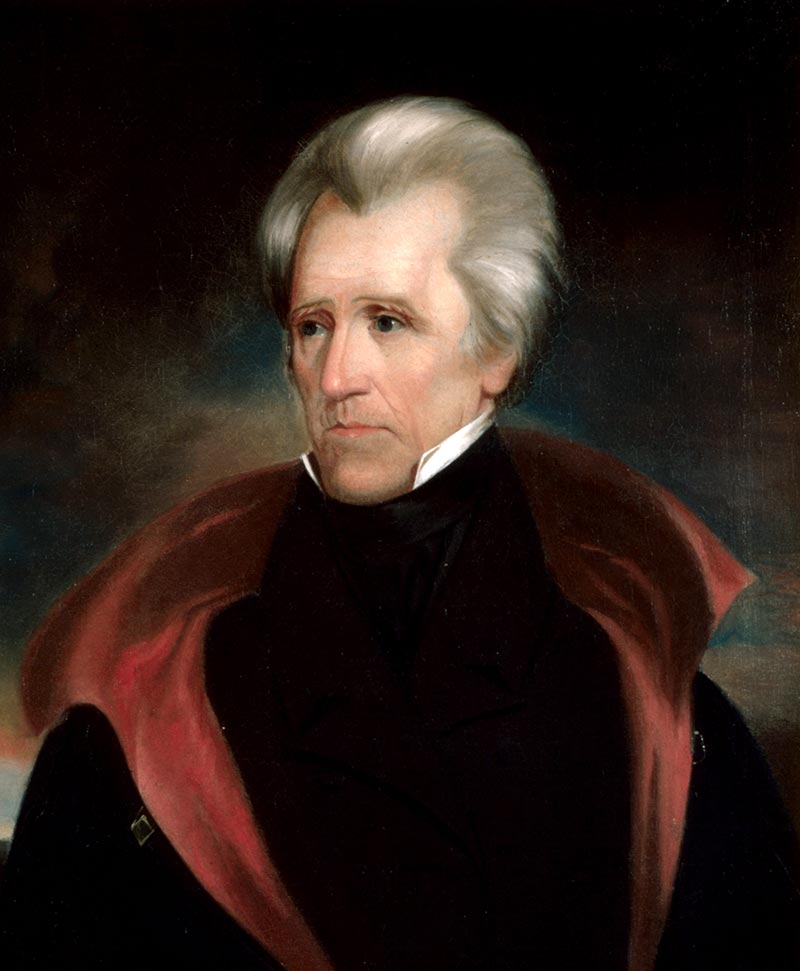
Andrew Jackson (1767-1845), seventh President of the United States
|
Calhoun served as Vice President under both John Quincy Adams and Andrew Jackson from 1825-1832, and was a legitimate candidate for President, until his break with Jackson. He served in the House of Representatives beginning in 1810, and built a reputation as the “most elegant and stately orator in the House.” He later served as Secretary of War, Secretary of State, and United States Senator from South Carolina. Calhoun was a man of iron clad principles and patriotism, as well as a constitutionalist of the deepest dye. One modern historian, (and he is not the only one), describes Calhoun as the “most important thinker to follow the Founders on matters of the Constitution and the Union.”
Men like Calhoun create dedicated and ambitious enemies as well. Unfortunately, the President of the United States, Andrew Jackson, said he would like to “hang him as high as Haman,” and he was not kidding. Henry Clay described Calhoun as “a rigid, fanatic, ambitious, selfish partisan and sectional turncoat with too much genius and too little common sense, who will either die a traitor or a madman.” (He did neither, of course.)
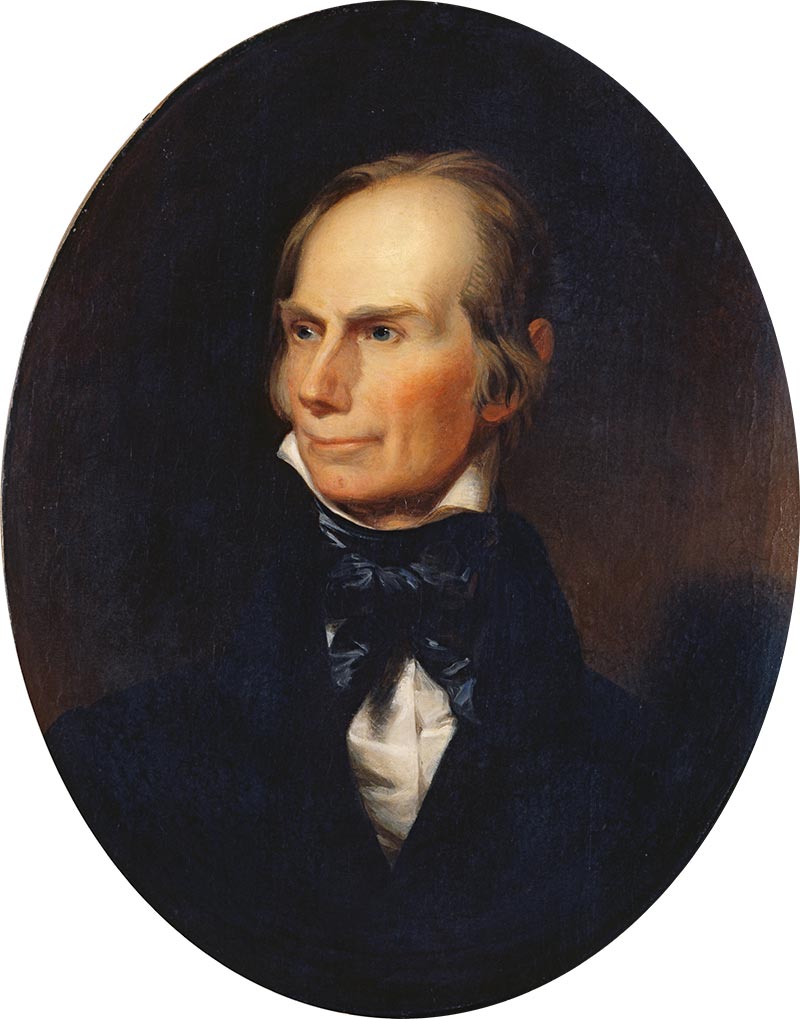
Henry Clay (1777-1852),
U.S. Senator from Kentucky
|
|
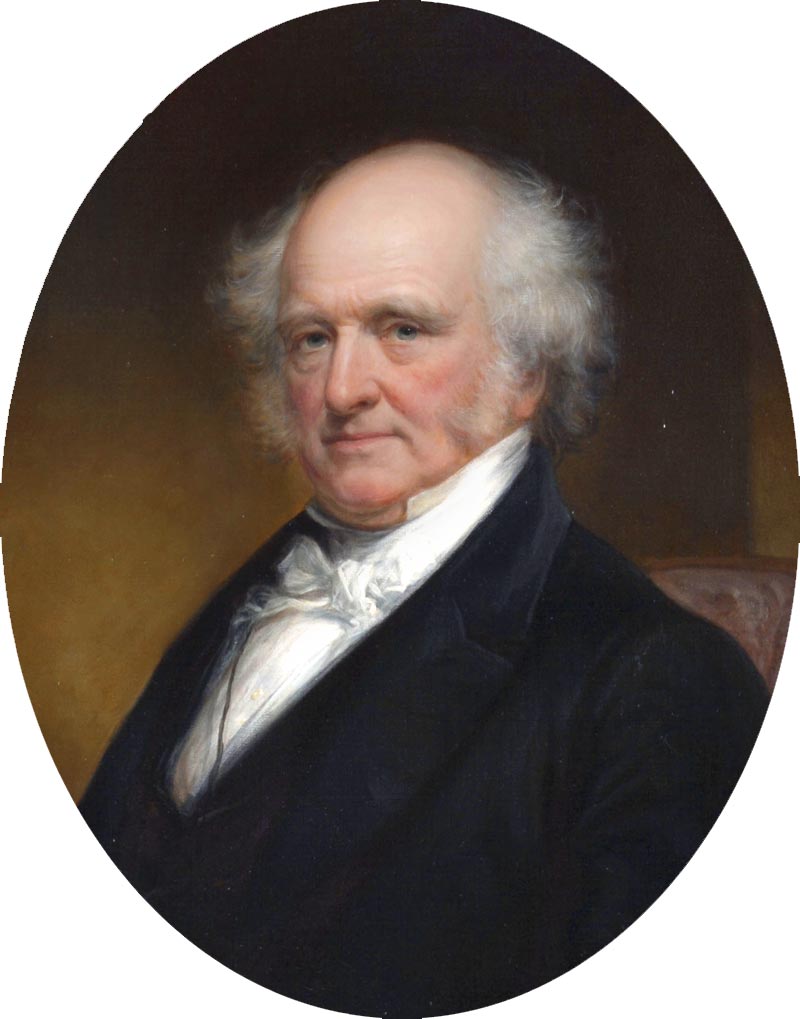
Martin Van Buren (1782-1862), eighth President of the United States
|
In 1832, a number of personal, social, and political kerfuffles came together over the head of Calhoun, resulting in his resignation from the Vice-Presidency, return to the Senate, and ascension to foremost Southern champion and defender of the Constitution, in the swirl of legislative controversy inspired by the War with Mexico. He and Jackson were never close friends. People commented that they looked alike, were both of the Southern planter class, and were similar in political philosophy on many occasions. Nonetheless, they differed strongly on several political points. Another politician, Martin Van Buren, also in Jackson’s cabinet, manipulated the circumstances of disagreement to his own advantage and to the detriment of Calhoun.
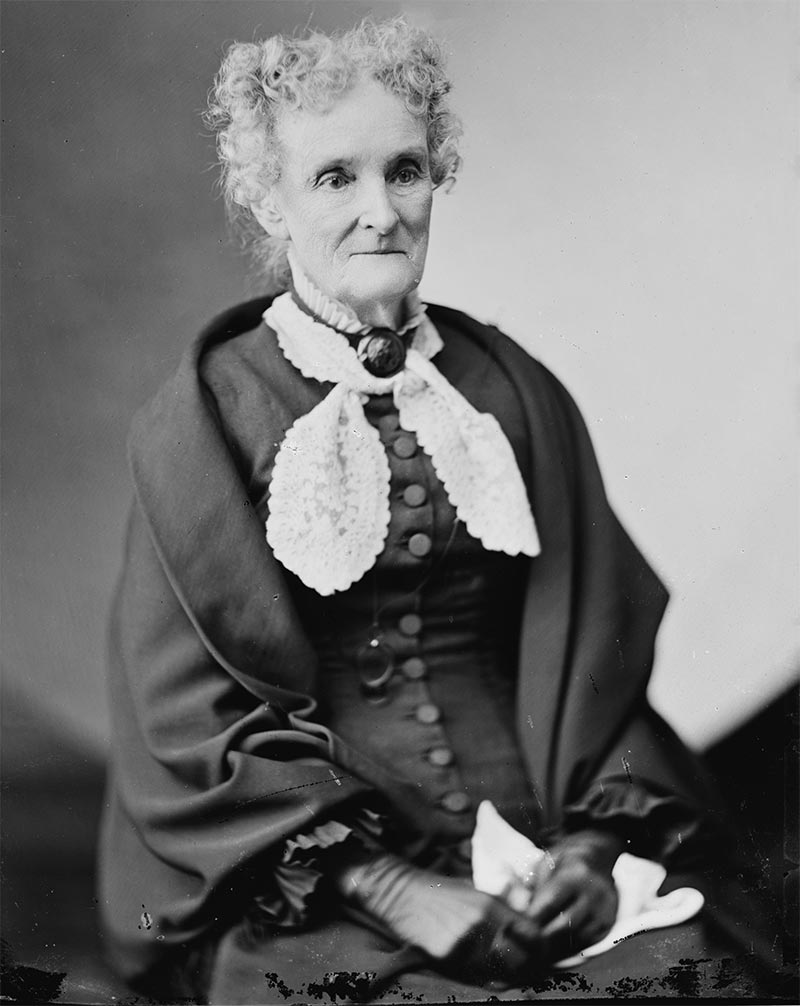
Peggy Eaton (1799-1879), wife of U.S. Senator from Tennessee John Henry Eaton
|
The incident that finally severed relations between the President and Vice-President occurred when Jackson reacted to Calhoun’s wife’s social snubbing of Peggy Eaton, the new spouse of another cabinet member. Jackson’s beloved wife Rachel had recently died, and he blamed her demise on scandalous treatment in the press. Jackson chose to defend the Eatons and made it known that the Calhouns were persona non grata, as far as the President was concerned. This “Petticoat Affair” coupled with Calhoun’s opposition to the huge tariff increase passed by Congress and signed by the President, the South Carolina statesman resigned from the Vice Presidency, only to be appointed Senator and return to Washington to carry on the fight against Jackson.
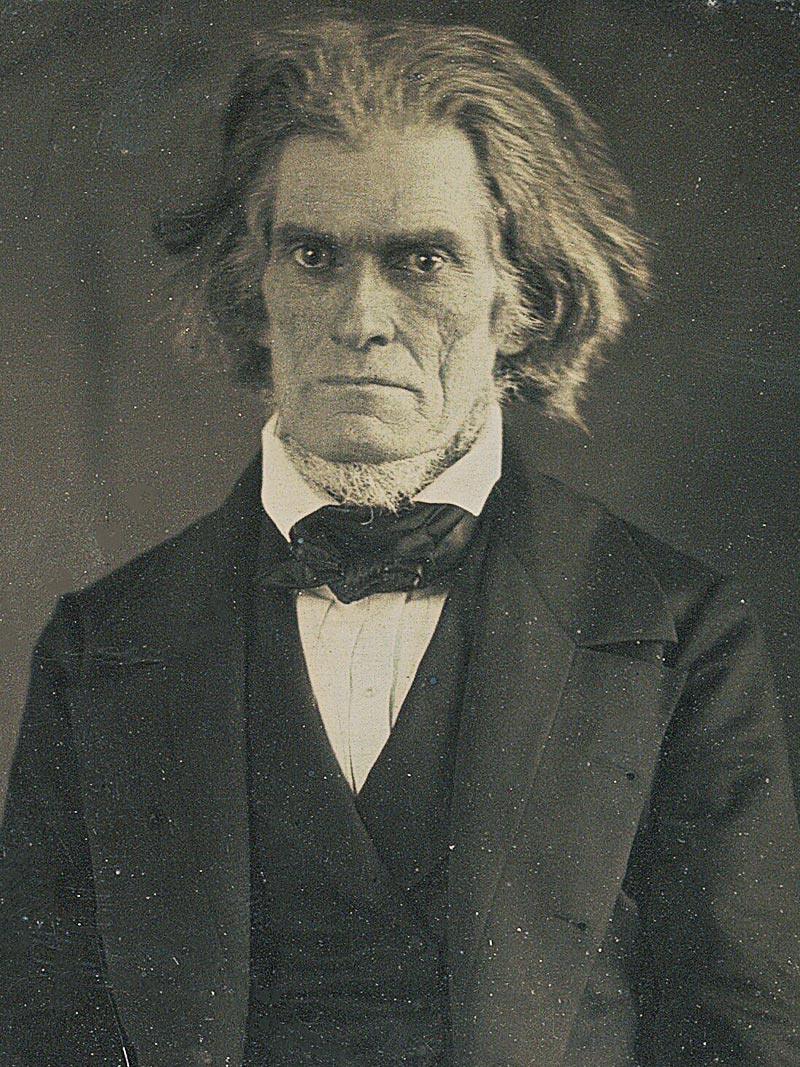 Calhoun in 1849, the year before his death Calhoun in 1849, the year before his death
Calhoun is best known as the defender of the Tenth Amendment, the doctrine of the “concurrent majority” and the belief in “interposition”—that lesser magistrates of a state had the right to disobey or nullify national law when those laws were proven unconstitutional—that they could interpose themselves between the people and tyranny. When South Carolina threatened secession, Jackson breathed out threatenings of invasion and of hanging Calhoun for treason. Eventual compromise in the Congress tempered the tempers and war was averted. Because of Jackson’s popularity, Calhoun could never succeed to the presidency, but he continued to make his mark in Constitutional expertise in the Senate. Some call him the Father of the Confederacy, though he died some ten years before secession became a reality.


- The Great Triumvirate: Webster, Clay, and Calhoun, by Merrill D. Peterson
- Andrew Jackson and the Course of American Freedom, 1822-1832, Vol. II, by Robert V. Remini

Image Credits:
1 John C. Calhoun (Wikipedia.org)
2 Andrew Jackson (Wikipedia.org)
3 Henry Clay (Wikipedia.org)
4 Martin Van Buren (Wikipedia.org)
5 Peggy Eaton (Wikipedia.org)
6 Calhoun in 1849 (Wikipedia.org)
|







